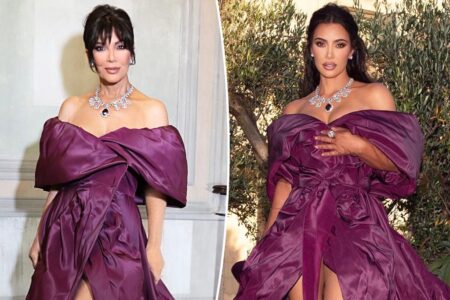SPOILER ALERT: This article contains major spoilers from the “Squid Game” series finale, now streaming on Netflix.
The last episode of the third and final season of “Squid Game” left fans reeling, after major moments like the sacrificial death of Seong Gi-hun (Lee Jung-jae) and the introduction of Cate Blanchett as a “Squid Game” recruiter in Los Angeles.
Variety got the answers to the biggest burning finale questions from series creator, writer and director Hwang Dong-hyuk, including details about Gi-hun’s philosophical final words, the enormous changes he made as he was drafting the last episode and how he might contribute to future “Squid Game” projects.
When did you first envision Cate Blanchett for the final scene?
That scene was in my mind towards the end of my writing process for the script. I did want to think a little more about who to bring onto the scene. I knew I wanted to have a woman recruiter, because I thought it would be something different and a little more impactful. Because it’s just one line and it’s a moment that you get to see this person, I wanted someone who had the charisma that could dominate the screen in an instant. I’ve always been a big fan of Cate Blanchett and all of my producers are as well. They really wanted her. As for offering the role to the particular actor, that happened after we began shooting.
Can we read that scene as setting up David Fincher’s “Squid Game: USA” show?
Actually no, not at all. It’s not related to that. All I wanted to have was just an impactful ending, and that’s all that was to it. Honestly, I haven’t heard officially from Netflix about David Fincher creating a “Squid Game.” I have heard the rumors of course though. But again, it was just the ending that I wanted for Season 3.
My colleague interviewed you before she saw the finale and you said that originally Gi-hun made a different choice to end the series. What was that choice, and what made you go in the opposite direction?
Originally, when I was planning for Seasons 2 and 3, I had no intention of having Gi-hun die. The idea that I had in mind was that Gi-hun would make it out alive in one way or another — he may become the winner — and he would go back to see his daughter. But in the writing process, and looking around at what was happening in the world, I realized that’s not how the story could end. That kind of unhappy ending and seeing what was happening around the world and seeing Gi-hun’s journey and his destination, I think it just didn’t line up for me. I thought that a better fitting story, and a closure to the story of Gi-hun’s journey, would be for him to sacrifice himself for future generations. So I had the baby in the story and created the ending with Gi-hun sacrificing himself.
Was there ever a draft where the baby didn’t make it?
The fact that I brought a baby into the story was not for the baby to be sacrificed. The baby was brought in as a symbol of the future and the next generation, the world and also our human conscience, all of which we have to protect. That’s why I brought in a pregnant character and a baby being born in the story. There was never a moment where I thought about that, because that would have been way too dark. Also, the baby symbolizes the fact that, for the future, we have to be able to oppress some of our greed, and sacrifice some of our own convenience and what is ours. That’s what I wanted to say and the baby is a symbol of that.
Could you explain what Gi-hun’s last words mean to you? Why it was important that the audience doesn’t hear the whole message?
More and more I’ve come to realize that it’s so difficult to define what humans are. We are very complex beings. Sometimes we’re filled with hope and goodness of the heart. And then in an instant, we’re filled with greed and immense selfishness. I wanted that last sentence to be a question that I asked all of our audience members. I wanted everyone to ask that question and ask themselves to finish that sentence on their own. And I think for the character Gi-hun, I thought that it would be better for him to show through action rather than finish that sentence in words. And I think from Gi-hun’s perspective, he did in fact finish the sentence by sacrificing himself, showing what humans should be.
What level of participation would you like to have with Netflix if they decide to do a new “Squid Game” project?
It would depend on what kind of show. If they wanted to do a following season, then I think it’s obvious I would have to participate and lead. But if it’s the U.S. version that they’re making, I think sharing of ideas would be enough. I have no intention of being completely hands-on in a project like that. Having said that, if Netflix asks and if I feel like my contribution is needed, then as long as it’s not something that would interfere with whatever I’m working on at that time, I would be happy to provide what they need from me.
This interview was conducted through a translator and has been edited and condensed for clarity.
Read the full article here








